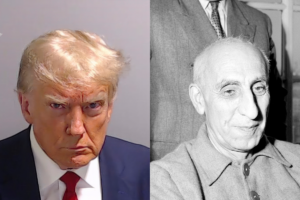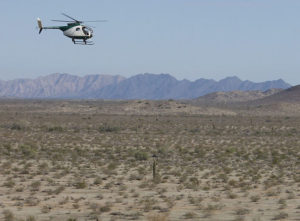How the U.S. and The New York Times Stifled Journalist James Risen
The former Times reporter explains how the government influenced the paper to suppress his post-9/11 reporting, citing national security concerns.
Journalist James Risen sent shockwaves through the media earlier this week with his lengthy account on The Intercept detailing how the United States government influenced The New York Times to suppress his reporting. The piece, “The Biggest Secret: My Life as a New York Times Reporter in the Shadow of the War on Terror,” outlines how the Times prevented Risen from publishing crucial stories in the years after the Sept. 11, 2001, terrorist attacks, citing national security concerns that began with the George W. Bush White House and continued into the Obama administration.
Risen has since appeared on Democracy Now! to discuss his column. Watch the two-part interview in the videos above.
In his Intercept piece, Risen writes:
After the 9/11 attacks, the Bush administration began asking the press to kill stories more frequently. They did it so often that I became convinced the administration was invoking national security to quash stories that were merely politically embarrassing … .
By 2002, I was also starting to clash with the editors over our coverage of the Bush administration’s claims about pre-war intelligence on Iraq. My stories raising questions about the intelligence, particularly the administration’s claims of a link between Iraq and Al Qaeda, were being cut, buried, or held out of the paper altogether.
Risen explains that, in the spring of 2004, he began to meet with a source who gave him “the story of a lifetime”: the NSA had been wiretapping Americans without search warrants or court approval. “The Bush administration was engaged in a massive domestic spying program that was probably illegal and unconstitutional,” Risen writes, “and only a handful of carefully selected people in the government knew about it.”
After digging and confirming the story with more sources, Risen had a draft of the story. But he faced pushback from the government, which put pressure on the Times to kill it.
Host Amy Goodman notes during Part One of the Democracy Now! interview that the story would have come out just before the 2004 election, which “could have been pivotal in this Kerry-Bush presidential election.”
“The Bush administration argued that it was too valuable for the counterterrorism programs in the United States,” Risen tells Goodman. “And the editors agreed with that at the time.”
After over a year of “a game of chicken with the Times,” Risen and his co-author, Eric Lichtblau, finally published the story after Lichtblau learned that “the White House had considered getting a court-ordered injunction to prevent the Times from publishing the story.”
“This was electric news, because the last time that had happened at the Times was during the Pentagon Papers case in the 1970s, one of the most important events in the history of the newspaper,” Risen writes in The Intercept. “The debate about whether to run the story was over.”
“I believe the Times, the Washington Post and other national news organizations have sometimes hyped threats from terrorism and weapons of mass destruction. The exaggerated reporting on terrorism, in particular, has had a major political impact in the United States and helped close off debate in Washington over whether to significantly roll back some of the most draconian counterterrorism programs, like NSA spying,” Risen concludes in his Intercept piece. “I do believe that the fight inside the Times over the NSA story helped usher in a new era of more aggressive national security reporting at the paper. Since then, the Times has been much more willing to stand up to the government and refuse to go along with White House demands to hold or kill stories.”
Read Risen’s full piece here and watch the two-part Democracy Now! interview in the player above.
—Posted by Emma Niles.
Your support matters…Independent journalism is under threat and overshadowed by heavily funded mainstream media.
You can help level the playing field. Become a member.
Your tax-deductible contribution keeps us digging beneath the headlines to give you thought-provoking, investigative reporting and analysis that unearths what's really happening- without compromise.
Give today to support our courageous, independent journalists.





